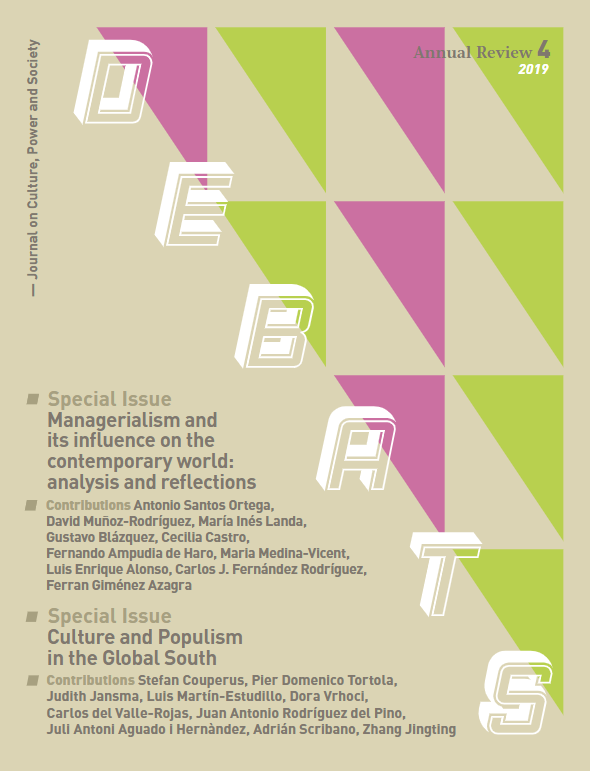A Critique of The Civilising Rationale: Strategies for producing marginalisation
DOI:
https://doi.org/10.28939/iam.debats-en.2019-13Resum
The radical distinction between civilization and barbarism used in the discourse of the national states of Chile and Argentina during the second half of the XIX century, not only was used to justify the genocidal military intervention of the territories inhabited by the mapuche indigenous from the south of both countries; but also inaugurated a conflictive relationship that remains to the present. The main objective of the paper is to identify the scope of the “civilization project” initiated during the second part of the 19th century and expressed during the 20th and 21st centuries through different and broad forms of marginalization, both ethnic and -by extension- immigrant, the
criminal and LGBT+ groups; in such a way that it is a historical, systematic and institutionalized process of producing marginalities, which considers various production strategies of the intimate enemy, especially from the cultural industry available in each time. The results show how “marginal/marginalized” is produced and reproduced, through policies of death, dispossession, inclusion/exclusion, in a constant relationship from moral, criminal and neoliberal rationalities.
Descàrregues
Descàrregues
Publicades
Com citar
Número
Secció
Llicència
Sense perjudici del que disposa l'article 52 de la Llei 22/1987 d'11 de novembre de Propietat Intel·lectual, BOE del 17 de novembre de 1987, i conforme a aquest, els/les autors o autores cedeix/en a títol gratuït els seus drets d'edició, publicació, distribució i venda sobre l'article, per tal que siga publicat a Debats. Revista sobre cultura, poder i societat.
Debats. Revista de cultura, poder i societat es publica sota el sistema de llicències Creative Commons segons la modalitat “Reconeixement – NoComercial (by-nc): Es permet la generació d’obres derivades sempre que no se’n faça un ús comercial. Tampoc no es pot fer servir l’obra original amb finalitats comercials”.
Així, quan l’autor/a envia la seva col·laboració, accepta explícitament aquesta cessió de drets d’edició i de publicació. Igualment autoritza Debats. Revista de cultura, poder i societat la inclusió del seu treball en un fascicle de la revista perquè es puga distribuir i vendre.











